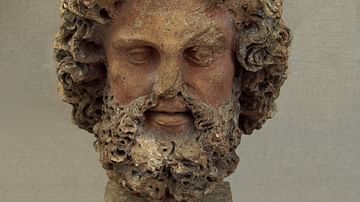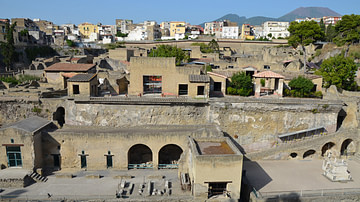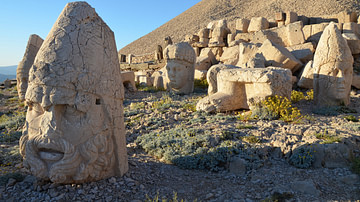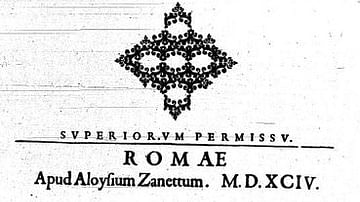Search
Search Results

Article
Festivals in Ancient Mesopotamia - Courting the Goodwill of the Gods
Festivals in ancient Mesopotamia honored the patron deity of a city-state or the primary god of the city that controlled a region or empire. The earliest, the Akitu festival, was first observed in Sumer in the Early Dynastic period (circa...

Article
The History Of Chess - A 1500-year-old Strategy Game
The game of chess has a particularly long and fascinating history of more than 1500 years. Over the centuries, there have also been hundreds of different chess variants, all of which incorporate the fundamental distinguishing feature of standard...

Article
Etruscan Pantheon
The religion of the Etruscans included a myriad of gods, goddesses, and minor divine beings, some of which were indigenous and some were imported, especially from Greece, and then given their own particular Etruscan attributes and myths...

Article
Ancient Korean & Japanese Relations
Ancient East Asia was dominated by the three states known today as China, Japan, and Korea. These kingdoms traded raw materials and high-quality manufactured goods, exchanged cultural ideas and practices, and fought each other in equal measure...

Article
Love, Sex, & Marriage in Ancient Rome
Love, sex, and marriage in ancient Rome were defined by the patriarchy. The head of the household was the father (the pater familias) who had complete control over the lives of his wife, children, and slaves. This paradigm was justified...

Article
Aristotle's On the Heavens
One of Aristotle's more famous quotes was, "All men naturally desire knowledge" ("πάντες ἄνθρωποι τοὺ εἰδέναι ὀρὲγονται φύσει") (Aristotle, Metaphysics, 1.980a.22). As a classical Greek philosopher, an ideology like this is required for producing...

Article
A Roman Trail in the Moselle Valley
The Moselle Valley is Germany's oldest winegrowing region. The Romans brought viticulture to this area and planted vines along the Moselle River 2000 years ago. After settling the region c. 50 BCE and establishing the city of Trier (Augusta...

Article
A Visitor's Guide to Herculaneum
In the first part of our new travel series devoted to the archaeological sites around the Bay of Naples, we shared some hints and tips as to how you can best prepare for your self-guided tour of Pompeii. In this second part, we look into...

Article
Exploring Mount Nemrut - A Meeting Point Between East & West
Set within the Anti-Taurus mountain range in southeastern Turkey, beyond the borders of Adiyaman, is the archaeological wonder of Mount Nemrut. Forgotten for centuries, the spellbinding peak of Nemrut Dagi (its Turkish name) has since managed...

Article
The Life of Aristippus in Diogenes Laertius
Aristippus of Cyrene (l. c. 435-356 BCE) was a hedonistic Greek philosopher who taught that the meaning of life was pleasure and that the pursuit of pleasure, therefore, was the most noble path one could pursue. Along with Plato, Xenophon...